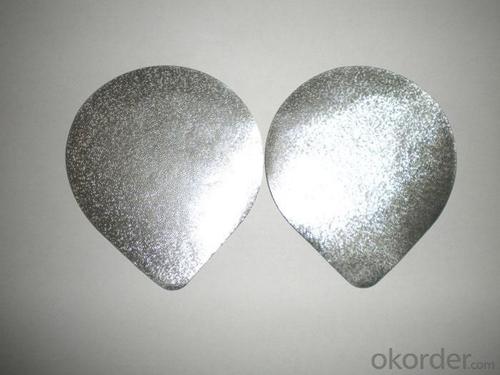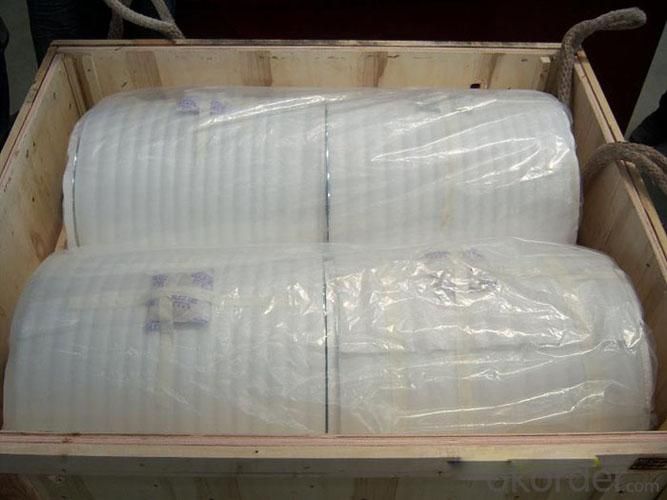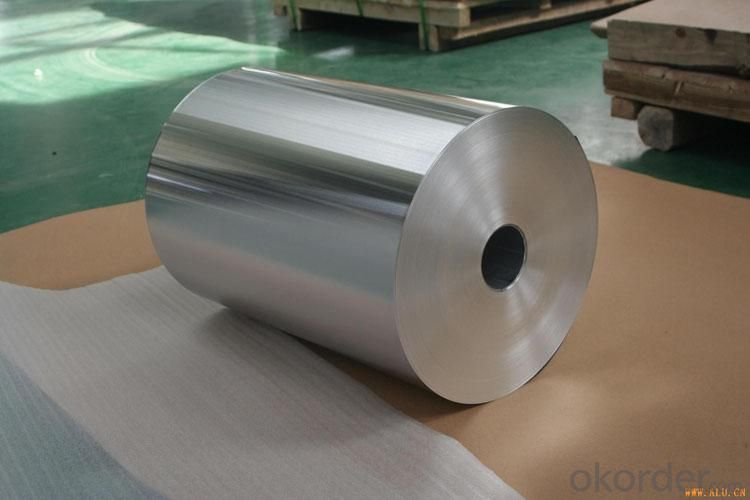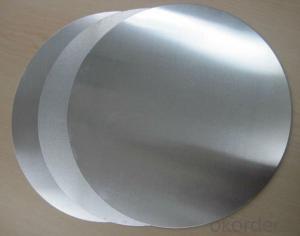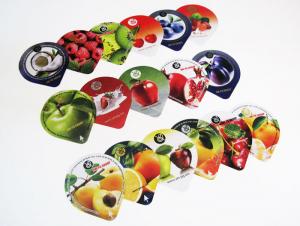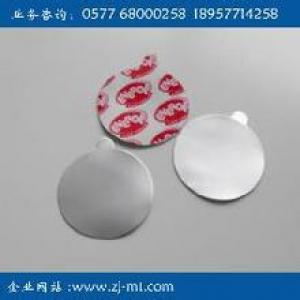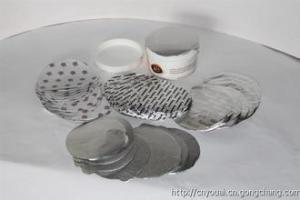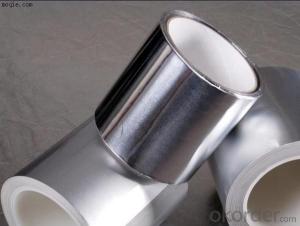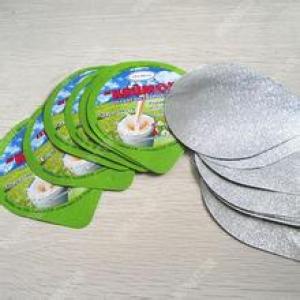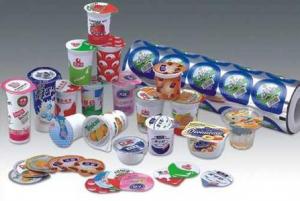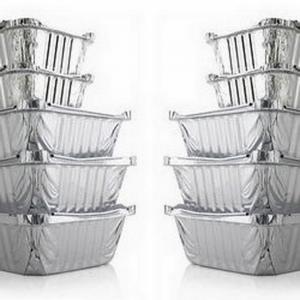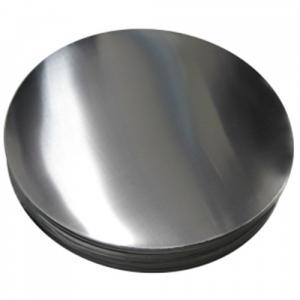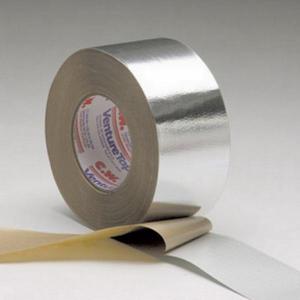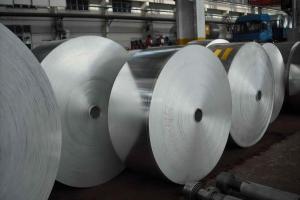Aluminum Lidding Foil
- Loading Port:
- China Main Port
- Payment Terms:
- TT or LC
- Min Order Qty:
- 3Tons m.t.
- Supply Capability:
- 3000Tons Per Month m.t./month
OKorder Service Pledge
OKorder Financial Service
You Might Also Like
Quick details of Aluminum foil for Lidding
|
Application: |
Lid of yogurt package, dairy package |
|
Alloy: |
8006/8011/ 8079 |
|
Temper: |
O |
|
Thickness& Tolerance: |
0.03mm-0.05mm (±5%) |
|
Width& Tolerance: |
200-1650mm (±1mm) |
|
Mechanical Properties: |
Tensile Strength(U.T.S)≥50MPA, Elongation≥1% |
|
Standard: |
GB/T3198 / ASTM-B209 / EN546 |
Usage/Application of Aluminum foil for Lidding
For Lid of yogurt package, dairy package
Packaging & Delivery of Aluminum foil for Lidding
Packing: seaworthy wooden box with pallet
Delivery: to be loaded by 1 x 20 feet container
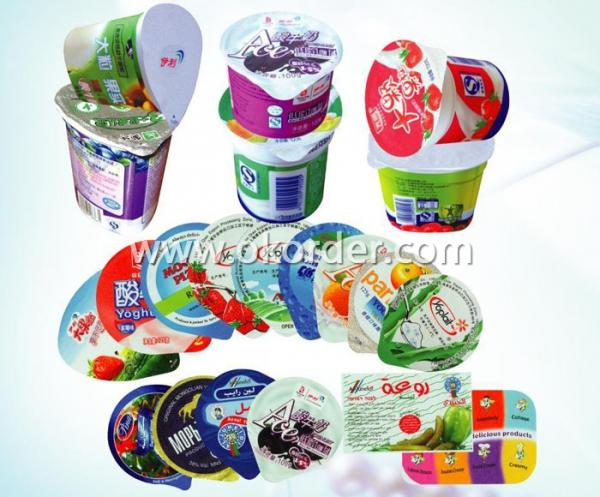
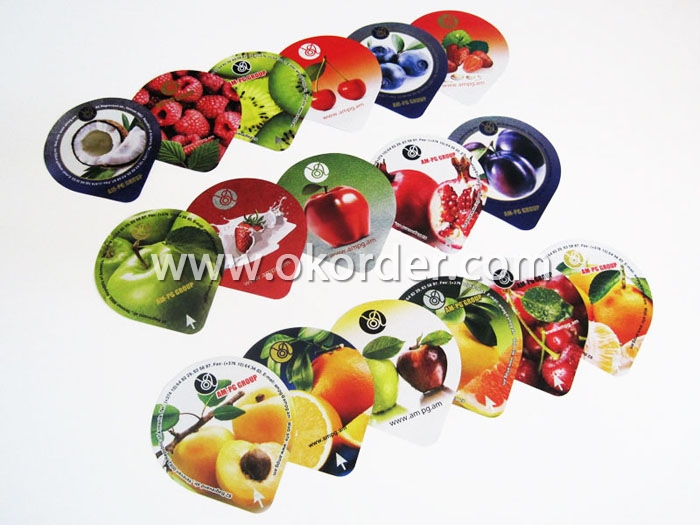
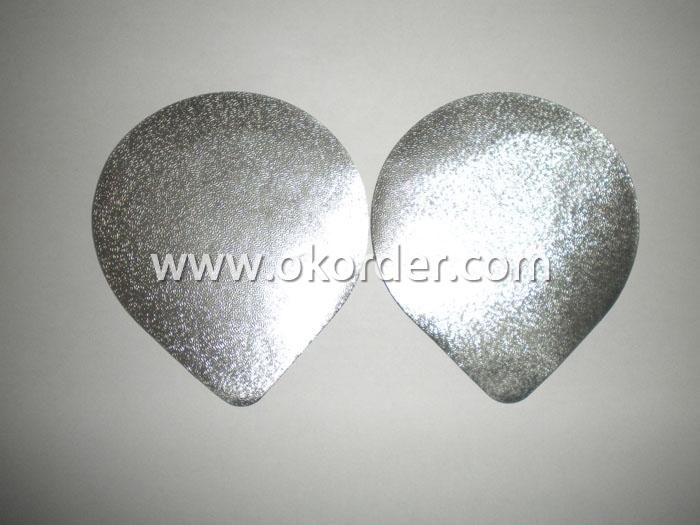
- Q: This question asks for a list of typical aluminum alloys that are widely used in various industries.
- <p>Common types of aluminum alloys include 1000 series, which are nearly pure aluminum; 2000 series, known for their strength due to copper content; 3000 series, which are alloyed with manganese for good formability; 5000 series, featuring magnesium for improved strength and corrosion resistance; 6000 series, which are popular for their strength and heat treatability; and 7000 series, recognized for their highest strength among aluminum alloys, often used in aerospace and automotive applications. Each series offers unique properties that make them suitable for specific applications.</p>
- Q: Is it possible to utilize aluminum in the construction of automobiles?
- <p>Yes, aluminum is widely used in automobiles due to its lightweight and high strength properties. It is commonly found in engine components, body panels, and wheels. Aluminum helps reduce the overall weight of the vehicle, which can improve fuel efficiency and reduce emissions. Additionally, it is resistant to corrosion and can be easily recycled, making it an environmentally friendly choice.</p>
- Q: This question asks for examples of alloys that have a significant amount of aluminum and are known for their strength and ductility.
- <p>Alloys that are known for their high aluminum content and possess excellent strength and ductility include 6061 aluminum alloy, 7075 aluminum alloy, and 2024 aluminum alloy. 6061 is widely used in structural applications due to its balance of strength, corrosion resistance, and formability. 7075 is one of the strongest aluminum alloys and is used in aerospace and high-strength applications. 2024 is known for its good mechanical properties and is used in aircraft structures and other demanding applications. These alloys leverage the benefits of aluminum, such as low density and high resistance to corrosion, while their specific compositions and heat treatments enhance their strength and ductility.</p>
- Q: Is it possible to use aluminum as a treatment for diseases?
- <p>Aluminum is not typically used to treat diseases directly. It is a common element found in the Earth's crust and is used in various industries, such as manufacturing and construction. However, aluminum compounds can have medicinal uses in specific contexts. For example, aluminum hydroxide is used as an antacid to neutralize stomach acid and treat conditions like heartburn. It's important to note that aluminum should not be ingested in large amounts, as it can be harmful. Always consult a healthcare professional for proper treatment and medication advice.</p>
- Q: Is it possible to utilize aluminum in the creation of innovative electronic devices?
- <p>Yes, aluminum can be used to make new types of electronic devices. Aluminum is a lightweight, corrosion-resistant, and highly conductive material, making it ideal for various electronic components. It's commonly used in heat sinks, casings, and wiring due to its thermal and electrical conductivity. Additionally, aluminum's malleability allows it to be shaped into intricate parts, which can be beneficial for compact and innovative designs in electronics. Furthermore, its abundance and low cost make it an attractive material for manufacturing new electronic devices.</p>
- Q: This question asks about the potential health consequences of being exposed to high levels of aluminum.
- <p>Excessive aluminum exposure can lead to various health effects. It has been linked to neurological disorders, including Alzheimer's disease, as it may accumulate in the brain and disrupt normal function. It can also cause bone diseases by interfering with calcium absorption, leading to osteomalacia and osteoporosis. Gastrointestinal issues such as constipation, colic, and even ulcers may arise due to aluminum's impact on the digestive system. Additionally, aluminum exposure has been associated with anemia, as it can inhibit the absorption of iron. While the extent of aluminum's toxicity is still a subject of debate, it is generally advised to minimize exposure to high levels of aluminum to avoid potential health risks.</p>
- Q: This question asks about the typical applications of aluminum pipes in various industries and settings.
- <p>Aluminum pipes are commonly used in a variety of applications due to their lightweight, corrosion resistance, and high thermal conductivity. They are extensively used in the automotive industry for parts like radiators and heat exchangers. In construction, aluminum pipes are utilized for heating, ventilation, and air conditioning (HVAC) systems. They are also used in the beverage industry for conveying and cooling liquids, as well as in the aerospace industry for fuel and hydraulic lines due to their strength-to-weight ratio. Additionally, aluminum pipes are found in industrial settings for compressed air and gas lines, and in marine applications for fuel and water systems.</p>
- Q: Is it possible to utilize aluminum in car manufacturing to enhance fuel efficiency?
- <p>Yes, using aluminum in car manufacturing can contribute to increased fuel efficiency. Aluminum is lighter than traditional steel, which can reduce the overall weight of a vehicle. A lighter car requires less energy to move, which can lead to better fuel economy. Additionally, aluminum has good strength-to-weight ratio, allowing for a strong yet lighter structure. However, it's important to note that while aluminum can enhance fuel efficiency, it also has higher manufacturing costs and may not be as recyclable as steel.</p>
- Q: What specific rules or guidelines are there for incorporating aluminum in construction projects?
- <p>Yes, there are special regulations for using aluminum in construction projects. These regulations vary by country and region but generally include standards for material properties, structural integrity, fire resistance, and environmental impact. For instance, the American Society for Testing and Materials (ASTM) and the Aluminum Association provide guidelines for aluminum usage in construction. Compliance with building codes is crucial, and these codes often specify the grades of aluminum, allowable stress values, and methods of joining. Additionally, considerations for corrosion resistance, thermal expansion, and recycling potential are important. It's essential to consult local building codes and industry standards to ensure compliance when using aluminum in construction.</p>
- Q: This question asks about the various applications and purposes of aluminum in different industries and everyday life.
- <p>Aluminum is widely used due to its lightweight, corrosion resistance, and high thermal and electrical conductivity. It's extensively used in the transportation industry for manufacturing vehicles, airplanes, and ships. In construction, it's used for window frames, roofing, and structural components. Aluminum is also prevalent in packaging, particularly for food and beverages, and in electrical components like wiring and capacitors. Additionally, it's used in everyday items such as cans, foil, and cookware, and in industrial machinery and tools. Its versatility and recyclability make it a valuable material across many sectors.</p>
Send your message to us
Aluminum Lidding Foil
- Loading Port:
- China Main Port
- Payment Terms:
- TT or LC
- Min Order Qty:
- 3Tons m.t.
- Supply Capability:
- 3000Tons Per Month m.t./month
OKorder Service Pledge
OKorder Financial Service
Similar products
Hot products
Hot Searches
Related keywords



